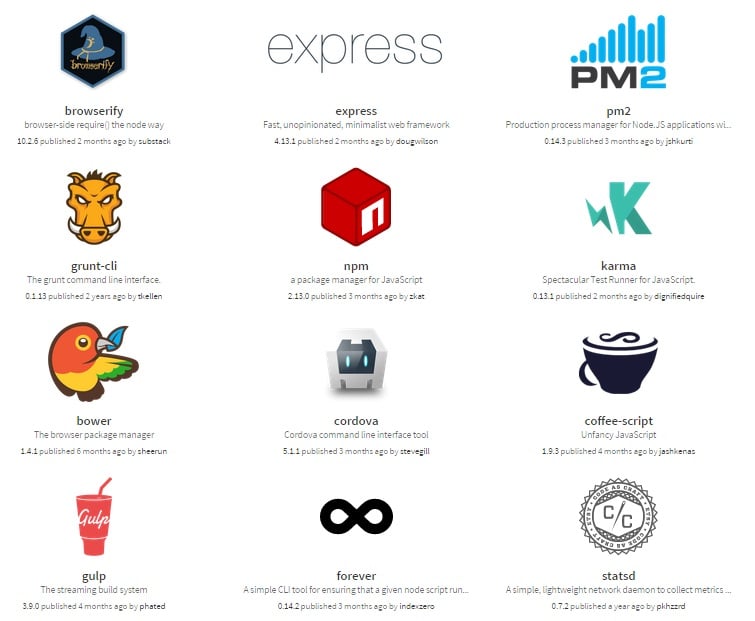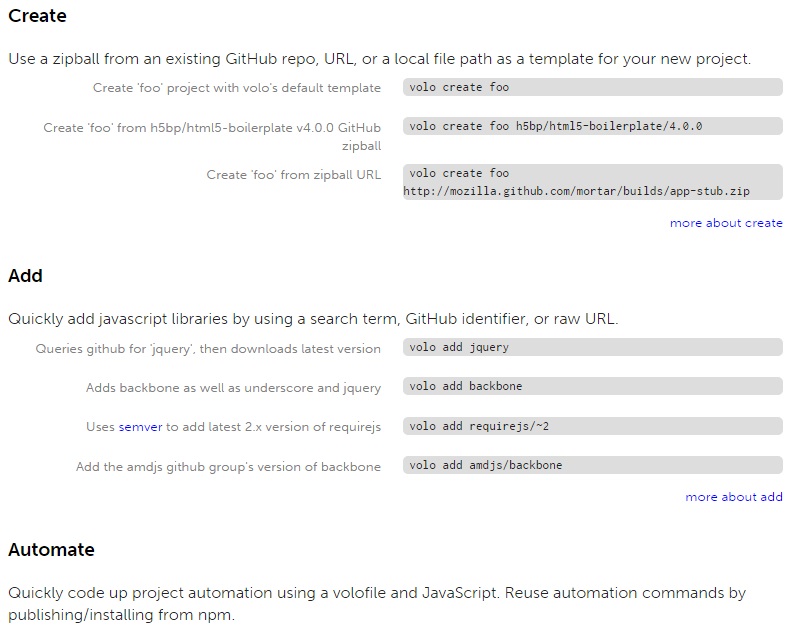The Best JavaScript Package Managers

The appearance of package managers entirely changed JavaScript routine processes, since they’ve solved a set of problems and simplified the use of the language. First of all, JavaScript package managers introduced a new reliable approach to third-party software. That’s why you only need to know how a certain tool works instead of learning the algorithm of the installation process, or how the software is built, compiled, and integrates with the system. Besides, you get a dependency management solution with every JavaScript package manager. The software knows the requirements of every package, so it automatically installs all the necessary components in order to satisfy the tree of dependencies.

In addition, every JS package manager constantly updates your packages, so you always get the latest features; or you can perform the updates manually. Moreover, some package managers provides the ability to get new features or solve current problems with the help of new software. Just go to the tool of your choice and find some new packages there.
If you develop packages, you can also rely on package managers, since some of them provide tools for creating packages ready for distribution. As a result, you can easily share your software among the community of JavaScript developers.
In the following blog post, we shed light on the most popular JavaScript package managers: npm, Bower, Volo, Grunt, and Ringojs. All of them are described below.
npm

npm is a JavaScript package manager for Node.js. It has begun as an open source project aimed at helping JS developers to share packaged code modules. Now, npm, Inc. is the company that also offers a public collection of Node.js packages, web and mobile apps, routers, robots, and tons of other useful things called the npm Registry. Besides, it is necessary to mention the command line client which is also dubbed. This tool essentially simplifies such routine processes as the installation and publishing of packages.
So, npm makes it easy to share and reuse code, as well as update what you’re sharing. To find out more about this JavaScript package manager, watch the following video:
The most popular npm packages are:
- . With the aid of this npm package, you will be able to utilize a node-style require() for organizing your browser code and loading modules installed via npm package manager. Browserify works with the require() calls in your app. It recursively analyzes them in order to create a bundle which can be served up to the browser in a form of a single <script> tag.
- is a fast and minimalist web framework that offers robust routing, high performance, advanced test coverage, HTTP helpers, support for 14+ template engines, content negotiation, and other useful features.
- is a production process manager designed to simplify your work with Node.js apps. It provides a built-in load balancer, as well as allows your apps to stay alive forever: due to pm2, you can reload them without downtime. This npm package also provides the ability to facilitate common system tasks.
- is a command line interface for Grunt. This JavaScript package manager will be discussed later in this post.
- is a simple tool for executing JavaScript code in multiple browsers. Its main purpose is to provide you with easy and fast test-driven development.
- is a package-agnostic, generic, unopinionated solution for front-end package management which runs over Git.
- is a command line tool for building, deploying, and managing Cordova-based apps.
- . This package provides the ability to use CoffeeScript – a language that compiles into JavaScript.
- will be helpful, if you are looking for a streaming build system.
- is a simple CLI solution which provides the opportunity to check that a node script runs continuously.
- is a simple network daemon for Node.js. It listens for sent over UDP statistics and sends aggregates to pluggable backend services.
- is a JS task runner.
- is a package that provides you with the access to leaner CSS features.
- . With the aid of yo, you will get a CLI tool for running Yeoman generators.

Bower

This JavaScript package manager simplifies your daily routine related to frameworks, assets, libraries, utilities, and other website components. Bower just manages all these things instead of you. It fetches and installs packages, as well as takes care of finding, downloading, and saving all the necessary stuff.
Bower utilizes a manifest file to keep track of all your packages packages. It’s up to you how to use packages, but Bower provides some vital hooks to facilitate these processes. The JS package manager is fully optimized for the front-end and relies on a flat dependency tree. Thus, Bower needs only one version for each package and minimizes page load time as much as possible. Besides, the tool manages non-JavaScript components and offers the largest front-end specific package registry. Find out how to streamline web workflow by using Bower in the following video:
The most popular Bower packages
Volo

Volo is another reliable tool which should be mentioned when it comes to JavaScript package management. It lets you reduce various headaches while creating projects, adding libraries, and automating common tasks. The functionality of volo is based on Node and JavaScript.
This JS package manager provides you with the ability to use a zipball from a GitHub repo, URL, or a local file path as a template for a new project. Besides, it entirely changes the common way of adding JavaScript libraries by making it possible to use a search term, GitHub identifier, or raw URL. It is also necessary to mention, that volo provides wide opportunities related to automation. The package manager offers volofiles to provide command endpoints for task management. Furthermore, it automatically converts files to AMD.
Grunt

Grunt is a JS task runner, which should be also mentioned in our list of JavaScript package managers, since it provides a lot of opportunities relate to automation. Simplify your daily coding routine by automating such processes as minification, compilation, linting via a Gruntfile.
The ecosystem around this JavaScript task runner is huge with hundreds of plugins to choose from. As a result, you can automate anything in your project with a minimum of effort.
Additionally, you can easily create and publish your own Grunt plugins. Check the below tutorial, if you don’t know how to install Grunt. You can rely on the official documentation as well.
RingoJS

Being built on the JVM and powered by the Mozilla Rhino JavaScript engine, RingoJS is optimized for server-side development. It offers a large set of modules and tools for their management. The module standard utilized by Ringo is CommonJS.
The tool allows apps to be run on nearly every JVM-based platform. As a result, Ringo apps can be found inside Linux containers, on large clustered servers, micro-computers, and cloud platforms. For further information, check the below and official sources:
Have any questions related to JavaScript package managers? Feel free to leave comments under this list of package managers.










